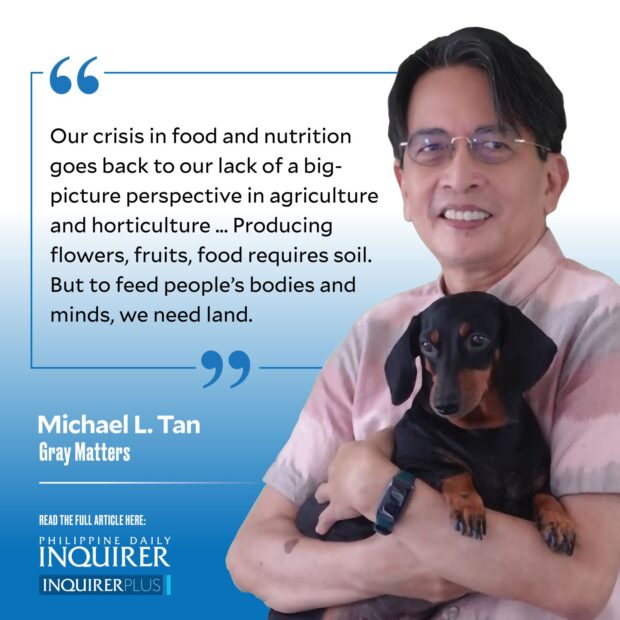Soils and land
 My mother loved to garden and was always buying flowering and fruiting plants, only to get frustrated because the profuse blooms (and sometimes, fruits) that attracted her to buy would wilt … and then it would be a long wait for them to see flowers or fruits again, if ever at all.
My mother loved to garden and was always buying flowering and fruiting plants, only to get frustrated because the profuse blooms (and sometimes, fruits) that attracted her to buy would wilt … and then it would be a long wait for them to see flowers or fruits again, if ever at all.
She would buy all kinds of fertilizers, often pushed by the plant vendors with all kinds of claims to produce super vegetables, fruits, orchids. In the last few years, the sellers have pushed products they claim are “natural” and “organic.”
I learned the truth about flowers and fruits after I began working in social action programs, which brought me into contact with people in agriculture. Many of the flowering plants we were buying were imported species better adapted to cooler climates, which even Tagaytay or Baguio cannot provide.
Then why were they blooming when displayed in the commercial gardens?
That was because the plants were being sprayed with high nitrogen mixes as well as plant hormones and growth stimulants, which could induce flowering. (For the fruiting trees, sellers simply chose the ones that were already fruiting to display.)
In graduate school in the United States, after taking up courses in agriculture, I learned to be more discerning about the books and lectures on flowering and fruiting, reminding myself all the time that I was in Texas, whose plants were more subtropical than tropical.
I did learn a lot about ecosystem management in general, starting with the soil, and how important it is to know the different kinds of soil. You just can’t expect flowers and fruits when you’re planting on rocks or adobe. You also need to know if your plant is acidic or alkaline, and study the slope of the land: Is the soil all eroded because rains keep washing off the topsoil?
Those were just some of the issues around the soil. You then have to deal with the climate—temperature and rainfall being the most important. The climate emergency has been so problematic giving us the hottest weather in recorded human history with “plantitos” and “plantitas” so desperate they’d be watering their gardens two or three times a day, sometimes drowning the plants!
My mother’s garden has improved, massively, as I asked for the help of agriculturists and landscapers. A warning about the latter, too. A good landscaper must understand botany and agronomy and stuff like plant sociology—if plants can be choosy, too, as to “who” they grow best with then we should be even choosier about who handles the plants’ homes.
More and more, people will be looking for agriculturists and landscapers who are into organic and sustainable gardening. For example, if you have a landscaper who boasts about, and pushes, imported plants, rather than being impressed, you better think twice. At best, their plants will survive but not thrive.
I now work in a college in Tagaytay where we have an agroecology garden that has been furiously producing vegetables, thanks to a director with lots of experience in sustainable agriculture. This exposure has made me realize there’s more to all this than gardening for leisure. Our crisis in food and nutrition goes back to our lack of a big-picture perspective in agriculture and horticulture.
For example, the college got a request to visit from a network of urban poor women who started using idle lands, often tiny patches, to start planting vegetables. Specifically, they wanted to learn more about making organic fertilizers.
Our agroecology director and I were amused and had to explain it takes more to coax the land and the plants to produce. We’ve agreed that for the visit, we’ll have to discuss soil and water management before even choosing what to plant.
I thought about this larger perspective at the just concluded annual meeting of the National Academy of Science and Technology, which fellow columnist Mahar Mangahas also described a few days ago. One plenary session was about agrarian reform and one of the panel reactors was Dr. Ben Maglayang, an environmental scientist and former president of Silliman University who referred to the importance of understanding soil management.
Producing flowers, fruits, food requires soil. But to feed people’s bodies and minds, we need land.
—————–
mtan@inquirer.com.ph




















